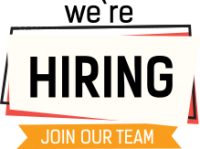
6 ways to beat your job interview anxiety
It's OK to be a little nervous about interviewing. Many people have a natural fear of public speaking; getting in front of a crowd and interviewing is very similar. If interviewing is something you fear then that's something you need to work on.
Looking and feeling comfortable during an interview will help you think clearly and explain effectively why you're the best candidate for the opening. Nerves usually dissipate, but fear can last the entire process, eliminating that calm look and feel about you.
Fortunately for many of those who fear the thought of interviewing, having a one-on-one or speaking in front of a panel, I have a number of helpful tips for you:
1. Preparation and Practice
Do your research ahead of time! You should research the company; check out their website, their social media profiles, any blogs or news articles that mention the company to make yourself knowledgeable about the company and the industry. Research the team that you will be meeting with, and make sure you understand the interview process. Ask your recruiter questions regarding the process and expectations ahead of time.
Next, remember to practice. Practice makes perfect. Spend 2-3 hours going over your background, your skills, and how you want to sound. Grab a friend and run through a mock interview with them. Have them ask you some potential interview questions. This will help you practice what to say and how to say it.
2. Arrive Early
Arriving early allows you to ease your mind and visualize success. Rushing into the interview late only increases the nerves and the panic feeling.
I suggest a practice drive to the interview location if you have the time to do so. If possible, try doing this at the same time you'll be leaving on your actual interview day. Learn exactly how long it will take with traffic and where you'll need to go.
All these techniques will help keep you calm on the day of the interview.
3. Know Your Résumé
When candidates are forced to look down and say, "umm", it comes off as a lack of confidence. You'll feel more confident as you speak when you can make eye contact with the interviewer. So candidates should know their resume inside and out; read out your skills and qualifications over and over until it's solid in their memory.
4. Smile
Even a nervous smile tricks anyone into thinking you're happy and confident. Nerves are expected, but horror isn't. People smile when nervous, but no one smiles when horrified.
Your nervous smile might even trick you into believing all is OK. And you know what, all is definitely OK.
5. Remember, You're also Interviewing the Company
Just as the interviewers will ask you questions, you'll also have time towards the end to ask your own questions regarding the company, position and responsibilities. Use this opportunity to make your personality and professionalism shine. Candidates should bring a list of 5-7 questions to an interview. Ask questions regarding:
- Ask about the position - What a typical day in the role looks like or what are the necessary skills of an ideal candidate. Ask about the challenges and achievements of the team you would be working with
- Ask about the training you would receive
- Ask questions about the interviewer's experience at the job to show that you are interested in him/her and that you want to build a great rapport with them
- Ask about the company and the 5-10 year goals the company has
- Ask the interviewer about your qualifications and if they have any advice for you moving into the company or industry. This is a very gutsy questions, but one that many interviewers like. It shows that you are confident in your skills, experience and the ability to succeed
6. Think Positively
What's the worst thing that can happen? You don't get the job - so what? There will be other opportunities. Think about the big picture and don't put all of your eggs in one basket. Use every interview as a learning opportunity and improve yourself if you don't get this job.
The key here is to always think big picture. The worst thing that could happen is you don't get the job and most likely never see the interview team again. Do your best, smile, and always prepare yourself.


